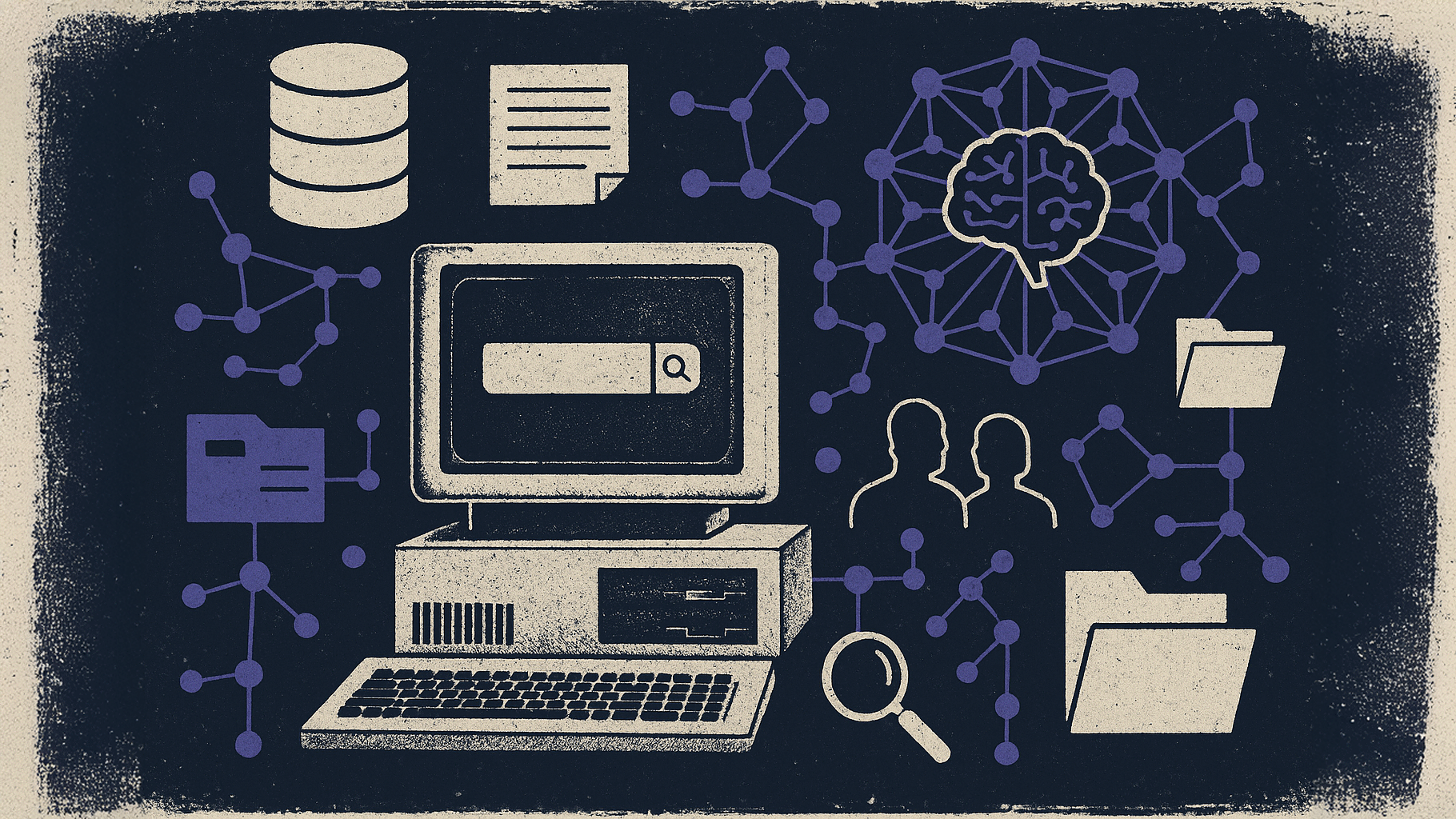
Transforming Enterprise Knowledge Management with Generative AI
The Evolution of Knowledge Management in Enterprises
Knowledge management has always been a cornerstone of successful enterprises. Over the decades, organizations have developed various methods and tools to capture, organize, and retrieve information efficiently. From physical filing systems to digital databases, the goal has always been to make knowledge accessible to those who need it, when they need it.
However, traditional search methods often fall short. They rely heavily on keyword matching, which can result in generic and often irrelevant search results. As organizations grow and data volumes explode, the need for more sophisticated search capabilities becomes critical. This is where generative AI comes into play, offering a transformative approach to knowledge management.
What is Generative AI and How Does it Work?
Generative AI refers to a class of artificial intelligence algorithms that can generate new content based on existing data. Unlike traditional AI, which follows predefined rules to analyze data, generative AI uses machine learning models to understand patterns and relationships within the data. It can then generate new, contextually relevant content that closely mimics human-like understanding and creativity.
The underlying technology often involves advanced models like transformers and neural networks, which can process vast amounts of data and generate highly accurate and relevant outputs. These models are trained on diverse datasets, enabling them to understand context, make inferences, and provide nuanced answers that go beyond simple keyword matching.
The Role of Generative AI in Modern Search Capabilities
Generative AI is revolutionizing search capabilities by providing more accurate, contextually relevant answers. Traditional search engines rely on keyword matching, which can often lead to irrelevant results. In contrast, generative AI understands the context of a query and generates answers that are tailored to the user's specific needs.
For instance, if an employee searches for "How to improve project management process?" a traditional search engine might return a list of documents containing the keywords "project management." Generative AI, however, can understand the intent behind the query and generate a comprehensive answer that includes best practices, tools, and methodologies specific to the organization's context.
Benefits of Contextual Answers Over Generic Search Results
The shift from keyword-based search to contextually aware search has several benefits:
-
Relevance: Contextual answers are more relevant to the user's query, reducing the time spent sifting through irrelevant results.
-
Efficiency: By providing precise answers, generative AI helps employees find the information they need quickly, improving overall productivity.
-
Personalization: Generative AI can tailor answers based on the user's role, past interactions, and specific needs, offering a personalized search experience.
-
Accuracy: Contextual understanding reduces the chances of misinterpretation, providing more accurate and reliable information.
Case Study: Nama's Use of Generative AI for Enhanced Search
Nama, a Brazilian technology company, has effectively leveraged generative AI to transform its search capabilities. By integrating Google Cloud's Vertex AI, Nama developed an advanced AI Search solution that indexes operational data, including internal documents and knowledge bases. This allows their system to provide precise, contextually relevant answers.
For example, if a customer queries Nama’s support system about a specific feature, the AI doesn’t just pull generic information. Instead, it understands the context of the question and retrieves the most relevant information, significantly enhancing the customer support experience. This approach has not only improved response times but also increased customer satisfaction by providing accurate and context-aware answers.
Case Study: Forbes' Personalized News Recommendations
Forbes has also embraced generative AI to enhance its content delivery. They launched Adelaide, a beta version of a news search tool that uses generative AI to provide personalized news recommendations. This tool analyzes user queries and generates answers based on trusted journalism from Forbes, making the discovery of content more intuitive.
Adelaide’s ability to understand user intent and provide tailored content enhances the reader’s experience. Users receive more relevant news and insights, which keeps them engaged and increases their time spent on the platform. This personalized approach not only benefits readers but also boosts Forbes' engagement metrics and overall readership.
How Internal Users Benefit from Generative AI Search
Internal users, such as employees, greatly benefit from generative AI search capabilities. Here are a few ways:
-
Enhanced Productivity: Employees spend less time searching for information and more time on productive tasks. Generative AI provides quick, accurate answers, enabling faster decision-making.
-
Knowledge Sharing: Generative AI can aggregate and summarize knowledge from various sources, making it easier for employees to share and access organizational knowledge.
-
Onboarding and Training: New employees can quickly get up to speed by accessing contextual answers to their queries, streamlining the onboarding process.
-
Problem-Solving: Employees can find solutions to complex problems by querying the AI, which provides comprehensive, context-aware answers.
Enhancing Customer Experience with AI-Driven Search
External users, including customers and clients, also gain significantly from AI-driven search capabilities. Here’s how:
-
Improved Customer Support: AI-driven search can provide instant, accurate responses to customer queries, enhancing the overall support experience.
-
Personalized Interactions: Customers receive tailored recommendations and solutions based on their unique needs and past interactions, increasing satisfaction and loyalty.
-
Self-Service Capabilities: Generative AI enables robust self-service portals where customers can find answers to their queries without human intervention, reducing support costs and improving efficiency.
-
Engagement and Retention: By delivering relevant, contextually aware content, AI-driven search keeps customers engaged and encourages repeat interactions.
In conclusion, generative AI is transforming enterprise knowledge management by providing highly relevant, contextually aware answers. This not only enhances internal productivity and knowledge sharing but also significantly improves customer experience. As seen in the examples of Nama and Forbes, generative AI search capabilities are setting new standards for how organizations manage and utilize their knowledge assets.

